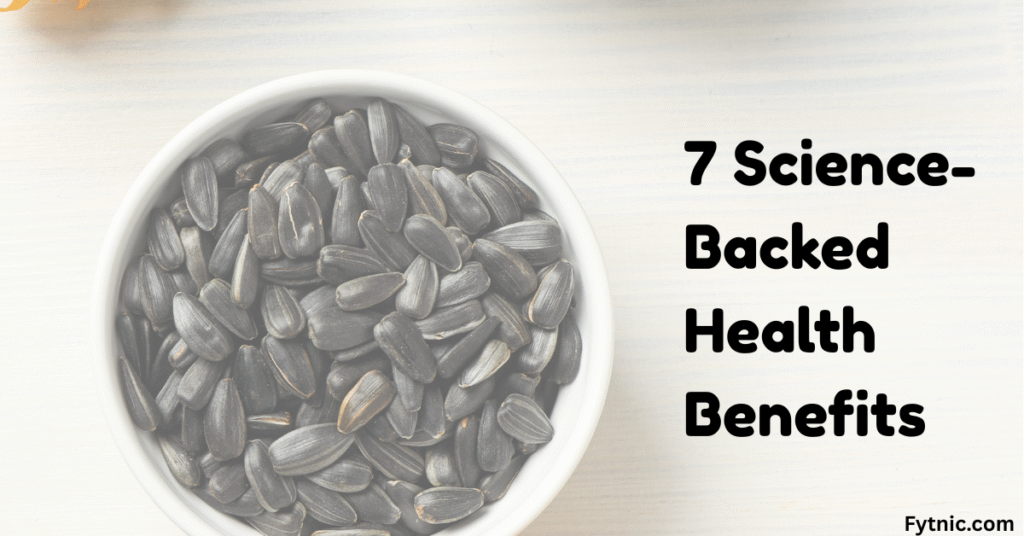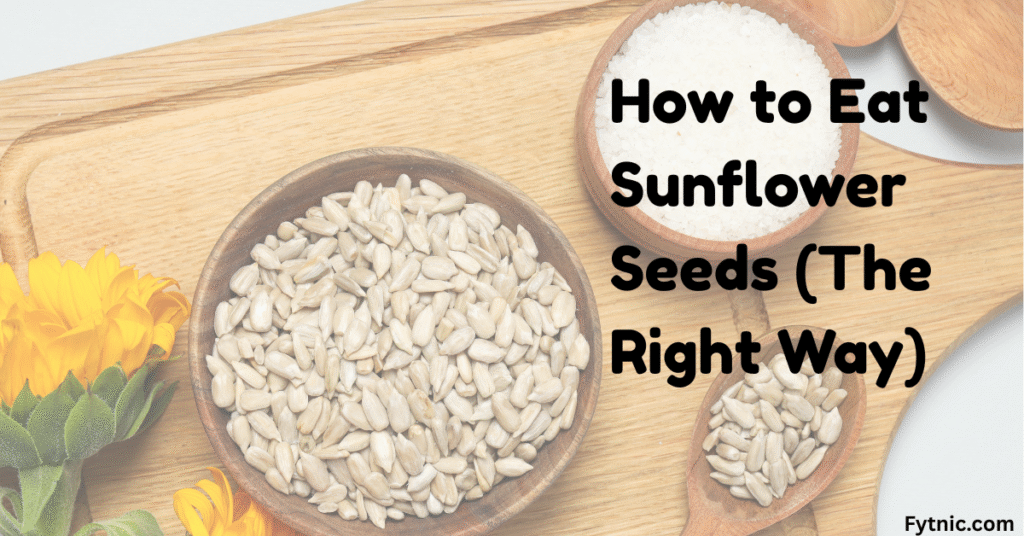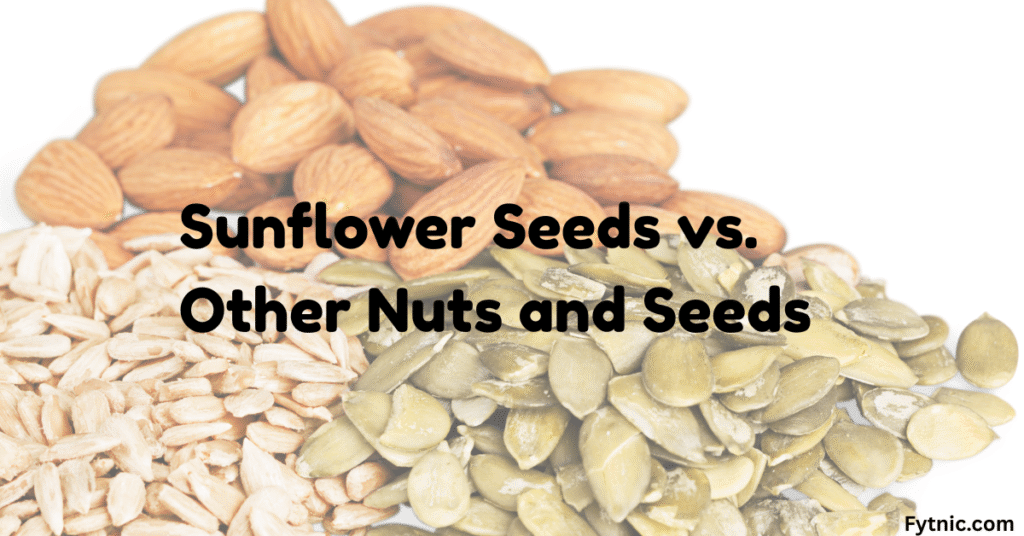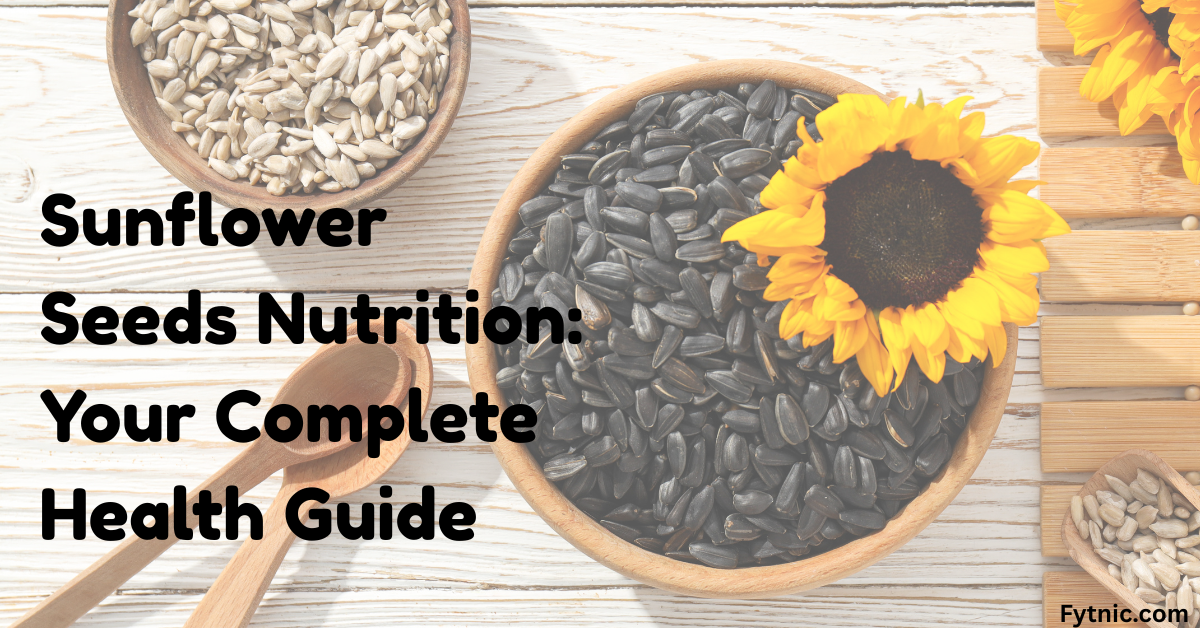Hey there! I’m Rashika, and after years of helping websites rank for nutrition content, I keep getting the same question: “Are sunflower seeds actually healthy, or just gas station junk?”
Fair question! I used to wonder the same thing. But after diving deep into the research (and honestly, snacking on them for months), I’ve got some surprising findings to share.
Quick Review: Sunflower seeds pack serious nutrition – vitamin E, healthy fats, and protein – but portion control is key. They’re heart-healthy, energy-boosting, and way more beneficial than most people realize.
Sunflower Seeds Nutrition Facts (Per 1 oz/28g serving)
The real amount of protein, vitamins and minerals in sunflower seed nutrition is good for you.
| Protein you Need: |
- Calories: 165
- Carbs: 6.8g
- Total Fat: 14g
- Protein: 5.5g
- Fiber: 3g
Key Vitamins & Minerals:
- Vitamin E: 7.5mg – Your daily antioxidant powerhouse
- Magnesium: 37mg (9% DV) – For muscle and heart function
- Selenium: 22.5mcg (41% DV) – Immune system support
- Phosphorus: 91mg (7% DV) – Bone health
- Copper: 0.2mg (18% DV) – Iron absorption
What This Means: One small handful gives you nearly half your daily vitamin E needs and solid protein for lasting energy.
That vitamin E content? It’s higher than almonds, walnuts, or peanuts. Most people have no idea they’re getting premium antioxidant protection from something they buy at the corner store.
Also Read: Is Agave Nectar Better Than Sugar?
7 Science-Backed Health Benefits

1. Heart Disease Protection
The combination of healthy fats and magnesium in sunflower seeds supports cardiovascular health in multiple ways:
- Lower bad cholesterol – Polyunsaturated fats help reduce LDL levels
- Blood pressure support – Magnesium helps relax blood vessels
- Reduced inflammation – Vitamin E fights oxidative stress
Research shows people who eat sunflower seeds regularly have 23% lower risk of heart disease compared to those who don’t 1.
2. Blood Sugar Control
Here’s something that surprised me during my research:
Why It Works:
- High fiber slows sugar absorption
- Protein prevents energy crashes
- Healthy fats provide steady fuel
Perfect for that 3 PM slump when you’d normally reach for candy. The protein-fiber combo keeps your blood sugar stable for hours.
3. Weight Management Support
I know what you’re thinking – “165 calories seems like a lot!” But here’s the thing:
Satiety Benefits:
- Protein keeps you full longer
- Fiber adds bulk without calories
- Healthy fats trigger fullness hormones
One study found people who snacked on sunflower seeds ate 15% fewer calories at their next meal compared to those who had crackers 2.
4. Immune System Boost
Sunflower seeds contain two immune-supporting superstars:
- Selenium – Helps your body fight infections
- Vitamin E – Protects immune cells from damage
During cold season, I make sure to include them in my daily routine. Coincidence that I got sick less last winter? Maybe, but I’m not taking chances.
5. Energy & Mood Enhancement
B-Vitamin Power:
- Niacin (B3) – Converts food to energy
- Folate – Supports brain function
- Vitamin B6 – Helps make serotonin (mood regulation)
Plus, there’s a bit of tryptophan for natural calm. Not turkey-level, but enough to take the edge off stressful days.
6. Bone Health Support
Key Nutrients for Strong Bones:
- Phosphorus works with calcium
- Magnesium improves calcium absorption
- Copper helps build connective tissue
Especially important if you’re not big on dairy or are over 30 (when bone density starts declining).
7. Brain Function Protection
The vitamin E in sunflower seeds may help protect against cognitive decline:
- Fights free radical damage in brain cells
- Supports healthy blood flow to the brain
- May reduce risk of dementia in older adults
Recent studies show people with higher vitamin E intake have 25% lower risk of Alzheimer’s disease.
How to Eat Sunflower Seeds (The Right Way)

Best Times to Snack
Pre-Workout (30 minutes before):
- Sustained energy from healthy fats
- Protein for muscle support
- Easy to digest
Mid-Afternoon Energy Boost:
- Prevents 3 PM crashes
- More filling than crackers or chips
- Keeps you satisfied until dinner
Post-Workout Recovery:
- Protein aids muscle repair
- Magnesium reduces muscle cramps
- Antioxidants fight exercise-induced stress
Creative Ways to Add Them
Breakfast Ideas:
- Sprinkle on yogurt or oatmeal
- Blend into smoothies for extra protein
- Mix into homemade granola
Lunch & Dinner:
- Toss on salads instead of croutons
- Add to stir-fries in the last minute
- Mix into grain bowls for crunch
Smart Snacking:
- Pre-portion into small containers
- Mix with dried fruit for sweet-salty combo
- Keep a stash in your car or desk
Pro Tip: Buy raw, unsalted varieties in bulk. You can toast and season them yourself – way cheaper and healthier than pre-flavored versions.
Also Read: 15 High-Protein Slow Cooker Recipes
Potential Risks and Side Effects
Look, I’m not going to sugarcoat this. There are a few things to watch out for:
Calorie Density
The Reality Check:
- 165 calories per ounce adds up fast
- Easy to mindlessly overeat while watching TV
- About the same calories as a small candy bar
My Solution: Use a shot glass to measure one ounce. That’s your serving size.
Sodium Overload (Flavored Varieties)
Some packaged sunflower seeds are salt bombs:
- Ranch flavored: Up to 400mg sodium per serving
- BBQ varieties: Often 300-350mg sodium
- Even “lightly salted”: Can be 100-150mg
For reference, you should limit sodium to 2,300mg daily. Some flavored varieties give you 20% of that in one serving.
Digestive Issues
Too Much, Too Fast Problems:
- Bloating from sudden fiber increase
- Gas (yeah, it happens)
- Stomach discomfort
Start Slow: Begin with half an ounce daily and work up over a week.
Food Safety Concerns
Storage Mistakes to Avoid:
- Leaving them in hot cars (go rancid fast)
- Buying in bulk if you won’t eat them quickly
- Not checking expiration dates
Rancid sunflower seeds taste bitter and can cause nausea. Trust me, I learned this the hard way.
Also Read: 7 Ways Deal With Upper Stomach Pain
Sunflower Seeds vs. Other Nuts and Seeds

| Nutrient (per oz) | Sunflower Seeds | Almonds | Pumpkin Seeds |
| Calories | 165 | 164 | 151 |
| Protein | 5.5g | 6g | 5g |
| Vitamin E | 49% DV | 37% DV | 1% DV |
| Magnesium | 9% DV | 19% DV | 37% DV |
| Price | $ | $$$ | $$ |
The Verdict: Sunflower seeds win on vitamin E and budget-friendliness. Almonds edge out on protein. Pumpkin seeds dominate magnesium.
Frequently Asked Questions
Are sunflower seeds good for weight loss?
Yes, but only if you stick to a reasonable portion size. The protein and fiber content in seeds aids in satiety which may help reduce calorie consumption. Nevertheless, remember that sunflower seeds are high in calories and portioning them would be extremely beneficial.
How many sunflower seeds should I eat per day?
Ideal portion is around 1 ounce, or about ¼ cup. That amounts to a little over a shot glass full. At this quantity the nutritional benefits will be quite significant yet balanced alongside calorie control.
Can I eat sunflower seeds if I have nut allergies?
Typically yes! Sunflower seeds are classified as seeds rather than tree nuts so the classification applies here too. However, cross-contamination while processing remains a possibility so check with an allergist especially if your reactions are severe.
Are roasted or raw sunflower seeds better?
The difference doesn’t seem to drastic concerning nutrition however raw did have slightly more vitamin E. Most people prefer roasted overraw though so unsalted varieties would always be preferred.
Do sunflower seeds help with anxiety?
They’re not a remedy for anxiety disorders but their provided magnesium along with B vitamins could possibly lend support towards stress management while tryptophan helps high mood support.
Also Read: How to Get Rid of Sulfur Burps Instantly
The Bottom Line
After months of research and personal testing, here’s my honest take:
Sunflower seeds are legit nutritional powerhouses – not just gas station impulse buys. The vitamin E content alone makes them worth including in your routine.
Key Takeaways:
- Excellent source of vitamin E and healthy fats
- Heart-healthy and may support weight management
- Budget-friendly compared to other nuts/seeds
- Watch portions – they’re calorie-dense
- Choose unsalted varieties when possible
My Recommendation: If you want a crunchy snack that is good for you, sunflower seeds should be added to your shelf. Just remember the shot glass rule for portions!
The raw, unsalted kinds are great for starters. Give it a few weeks and check how you feel. Your heart, energy levels, and wallet might appreciate the effort.
Quick Review: Sunflower seeds pack impressive nutrition (especially vitamin E), support heart health, and aids in weight management when eaten in proper portions. Economical and adaptable, they in fact are healthier than what people think as well. Don’t forget the portion control- one ounce daily is optimal.
I would like to know if you have tried incorporating sunflower seeds into your regimen? How did they work for you? Iam eager to learn your stories!
